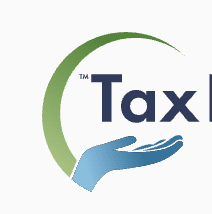In an unprecedented move that has captured the attention of economists, policymakers, and everyday Americans alike, Elon Musk's Department of Government Efficiency (DOGE) has emerged as a potentially transformative force in the US economic landscape.
Established and implemented by executive order in January/February 2025 under the Trump administration, DOGE represents an ambitious effort to streamline federal spending and reduce inefficiencies. But what does this mean for American households, businesses, and the broader economy?
» Protect your finances from DOGE-related economic shifts with our best tax relief companies of 2025.
Key Insights
- DOGE's aggressive spending cuts could reduce the federal deficit but may slow economic growth in the short term.
- Small business owners should adjust to changes in regulatory landscapes and new tax structures.
- Financial markets are responding with concern as investors reassess government-dependent sectors.
- Long-term economic impacts remain uncertain and will depend on implementation strategies.

Understanding DOGE's Mission and Scope
Elon Musk’s DOGE is a bold experiment in federal cost management. Unlike traditional government efficiency initiatives, DOGE operates with a small team of around 100 professionals, primarily from the private sector, and is empowered to recommend sweeping changes across federal agencies.
What Sets DOGE Apart?
Direct presidential oversight: Biweekly Cabinet-DOGE meetings ensure rapid decision-making.
Cross-departmental authority: DOGE can evaluate spending and instruct the heads of any federal agency.
Zero-based budgeting: All expenditures must be justified from scratch rather than relying on historical budgets.
This unique approach allows DOGE to bypass bureaucratic delays that have hindered similar efforts in the past.
Potential Economic Impacts of DOGE's Cost-Cutting
The immediate economic implications of DOGE's work are becoming increasingly apparent as the first wave of recommendations moves toward implementation.
Financial markets have already begun pricing in expectations of reduced government spending, with notable concern in sectors heavily dependent on federal contracts.
Short-Term Economic Concerns
The US economy, already showing signs of slowing down with Q4 2024 GDP growth at 2.4%, faces additional risks from reduced government spending. Key concerns include:
Federal employment effects: Potential job losses in government sectors could temporarily increase unemployment.
Reduced stimulus effect: Government spending has traditionally improved economic stability during downturns.
Consumer confidence impact: Uncertainty about program cuts may reduce household spending.
Supply chain disruptions: Changes to government contracts could create business planning challenges.
» Find out how to pay less taxes during DOGE-driven economic shifts.
Long-Term Growth Potential
Proponents of DOGE's approach argue that short-term pain will lead to long-term economic gain. The underlying theory suggests that reducing government waste will improve efficiency, reduce taxes, increase private wealth, and ultimately unleash private-sector innovation and investment.
Deficit reduction benefits: Lower government borrowing could reduce interest rates for businesses and consumers.
Regulatory streamlining: Simplified rules might reduce compliance costs for businesses.
Tax implications: Reduced spending could create room for future tax reforms.
Market efficiency: Resources may flow toward more productive private sector uses.
What DOGE Means for Your Personal Finances
The ripple effects of DOGE's policies will likely reach individual Americans' wallets in various ways, creating both challenges and opportunities for financial planning.
Tax Planning Considerations
Here's how to prepare your finances in light of tax changes:
- Track every business expense: Keep organized records of all deductible costs to maximize your tax savings if deduction rules change.
- Boost retirement savings: Put more money in tax-advantaged accounts like 401(k)s and IRAs to protect your earnings from potential tax increases.
- Rethink your giving strategy: If charitable write-offs change, consider bunching charitable donations or using donor-advised funds to maximize deductions.
- Watch capital gains carefully: Consider timing your investment sales based on potential changes to how investment profits are taxed.
- Time your income and expenses: You might benefit from claiming more deductions now or postponing income if tax rates are expected to shift.
» Find out how Trump's tax changes can affect your finances this year.
Investment Strategy Adjustments
As DOGE reshapes federal spending, consider adjusting your investments accordingly. Here's what you should keep in mind:
- Government contractors may struggle: Companies that rely heavily on federal contracts could see reduced revenue as spending cuts take effect.
- Infrastructure opportunities shift: Watch for companies partnering with the government on cost-sharing projects instead of those dependent on full federal funding.
- Healthcare investment landscape changes: Companies adapted to new government healthcare priorities may outperform those tied to programs facing cuts.
- Efficiency tech becomes valuable: Companies offering software, AI, or services that help reduce costs could see increased demand as agencies seek to do more with less.
DOGE's Global Economic Implications
The international economic community closely monitors DOGE's implementation and impact, recognizing that significant changes to US fiscal policy inevitably affect global markets. Here's what to keep in mind:
Dollar strength considerations: Reduced deficits could influence currency valuations, potentially increasing the dollar's value.
Trade agreement dynamics: New spending priorities may affect international economic relationships.
Foreign investment patterns: Changing regulatory landscapes could alter investment flows.
Global competition effects: Efficiency improvements may enhance US competitive positioning.
Need help navigating changes to tax structures?
Conclusion
Musk's Department of Government Efficiency represents a bold experiment in federal spending reform. While short-term disruptions seem likely, the initiative's ultimate success depends on thoughtful implementation and economic conditions.
As these policies unfold, staying informed and adaptable will be crucial for taxpayers, businesses, and investors. Time will tell if DOGE delivers on its promise of economic vitality through government efficiency or if its approach proves too aggressive for the current economy.
» Need expert guidance through economic uncertainty? Compare our recommended tax relief services to develop a customized strategy.
David Kindness is a finance, insurance and tax expert at BestMoney.com. He has written for Investopedia, The Balance, and Techopedia, sharing his deep expertise in taxation, accounting, and finance. A CPA with a Bachelor’s in Accounting, David has worked as a tax specialist and Senior Accountant for high-net-worth clients and businesses in the San Diego area.




